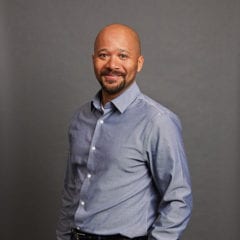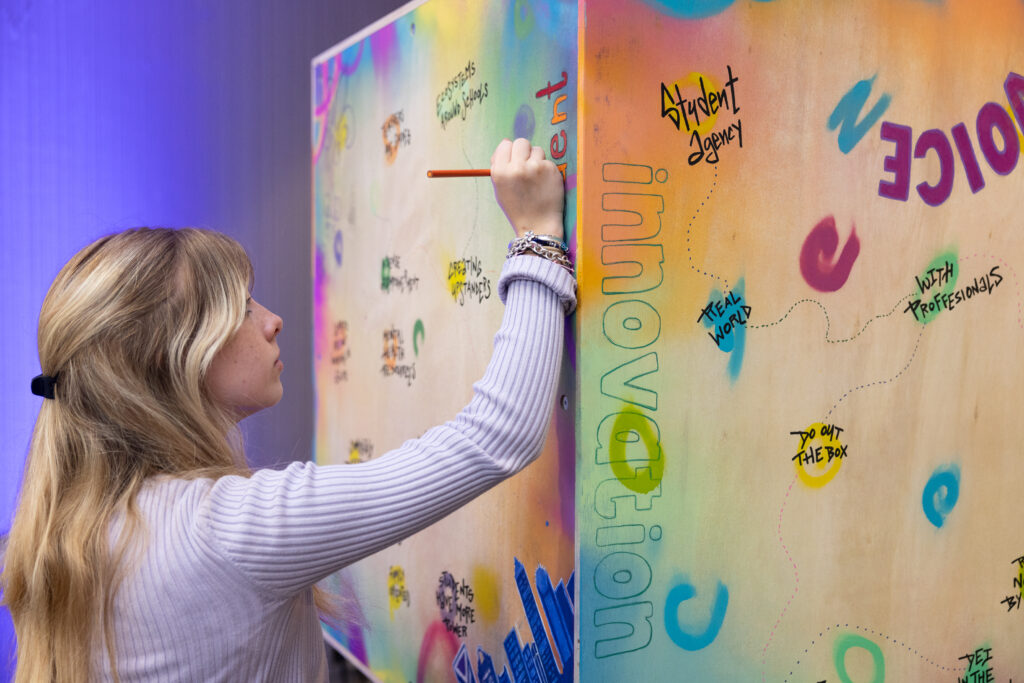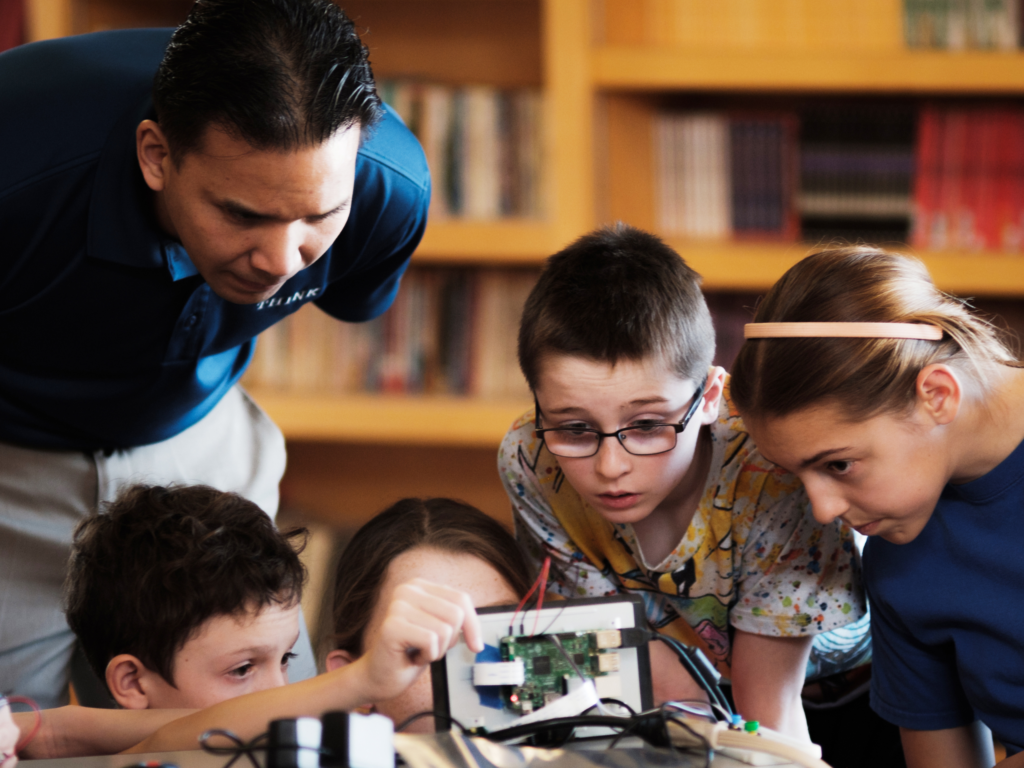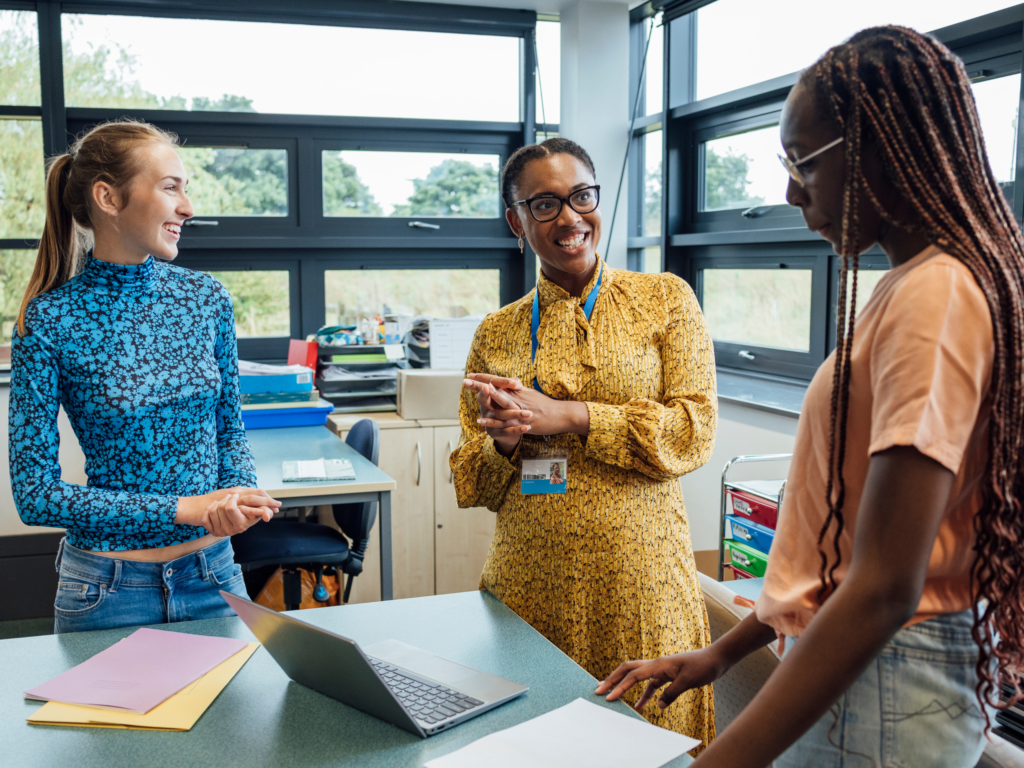By Antonio Tapia, Senior Associate Partner, NewSchools Venture Fund
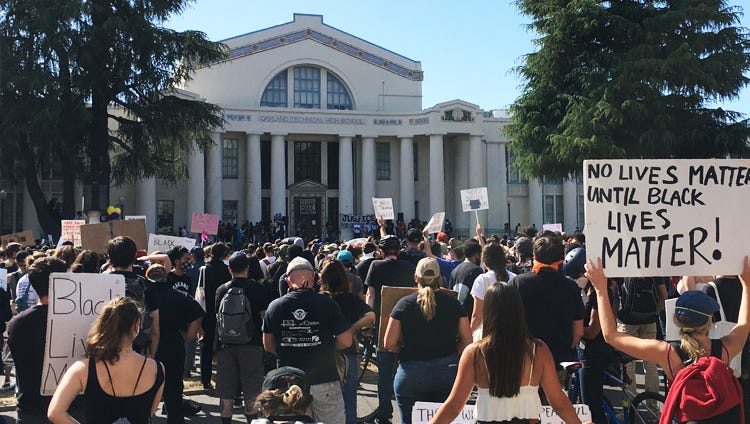
Image via KPFA
My daughter, Samira, and hundreds of other young people were protesting the death of George Floyd at Oakland Technical High School some weeks ago. Despite the risk of contracting COVID-19, she ultimately decided that she needed to have her presence felt, and her voice heard, so she marched. I was worried about the virus and the possibilities of her being physically hurt, but I knew what motivated her. I had the same motivation when I was her age.
My own journey in activism started when I was in high school. By that point, I had already had my first interaction with the police. When I was 13-years-old, two policemen stopped my 12-year-old cousin in our South Bronx neighborhood. They frisked my cousin, cursed at me, and threatened to beat me. It was the first of numerous, unprovoked interactions with the police.
So in high school and afterward, I marched in protests against police brutality, led protests against racism on campus, spoke out against entrenched racism, and protested in New York City while helicopters circled overhead.
Somewhere along the way, I lost hope. I got tired of having the same conversations around race and racial injustice with just incremental change ever on the horizon.
But now, while I am experiencing the pain, anguish, and fear alongside so many others, I’m hopeful because there are actual, real signs of change out there. The recent events and my conversations with Samira have brought out a sense of possibility for me. These are the things that came to me that bring me hope.
. . .
I’m hopeful because young people are fired up. They’re being confronted with repressive police forces in many places, yet they keep coming out in force. They shouldn’t have to put their safety on the line, but their courage and fight are raw, genuine, and uncompromising. Perhaps because my own kids are teenagers, or because I’m thinking of the students I’ve taught before, or just because I’ve always believed in the power of youth, I’m deeply moved by the intensity and commitment of how young people are now engaging.
I’m hopeful because teenagers and young adults are not taking for granted that “things don’t need to be the way they’ve been.” Samira recently shared this point of view with me. Her group of friends, like many teenagers, are much more open to different ways of thinking and accepting of differences than ever before. Moreover, they’re not hampered by the status quo. Whether they’re protesting a hate rally through social media resistance or pushing back against long-held views in society, they’re destroying boundaries and taking names.
I’m hopeful because it’s not just people of color anymore. I remember the Rodney King beating and the officers’ acquittals, clearly. Young white folks were not showing up then. Now, they’re standing side by side (and sometimes in front). Even white celebrities have put out some next-level stuff. I couldn’t name a Taylor Swift song to save my life, but I will say she used her platform powerfully on these issues recently. At my old high school, white alumni have drafted a list of demands (demands that are pretty damn near revolutionary for any school, let alone a prep school) and are pushing those forward. Young white folks are helping to lead the change in a real way I haven’t experienced before.
I’m hopeful because there are a group of very loud, highly fired-up conservatives that have called out the confederate flag and monuments as symbols of treason and oppression. They’ve made it part of their mission to remove them- and face the racial reckoning- rather than placate vocal constituencies.
I’m hopeful because the language of racism is becoming well-known, and we’ve seen that the response to racist behavior can be quick and unforgiving. I followed the Amy Cooper story as it was happening and was, frankly, surprised at how quickly — from a Sunday to a Monday — her company determined her dangerously racist behavior was not in line with their values and took action. Whether it was truly a values-based decision or a P.R. response, the message was clear: it wouldn’t be tolerated.
I’m hopeful because the American citizenry has shown that they will shut things down if cops keep murdering Black people. All 50 states have been involved in the protests against police brutality and for Black lives. We’ve had regional upheaval before, but now, it’s the whole country.
I’m hopeful because the rest of the world supports the protests. In the 1990s, apartheid was brought to heel partly because of the countries that pressured the South African government. With a recent U.N. HRC condemnation and the rest of the world watching, the outside pressure on our government will matter. Millions of people around the world are literally putting their own lives and health at risk amidst a pandemic to show solidarity for Black lives in the U.S.
And I’m hopeful because Black lives are now very visibly intertwined with the life of this country. Police reform and police brutality are not the core issue. They are the current manifestation of white supremacy and the state’s antipathy towards Black people. And white supremacy isn’t a side note in this country’s history; it is what the country was built on. Without entrenched racism, this country would not exist. For the country to survive and thrive, we’ll need to deal with entrenched racism.
. . .
So, I’m hopeful that this reckoning around Black lives is real, but I’m not naive about the challenges ahead. Black authors and activists have already shared apprehension that white allies are out in the streets because it’s the trendy thing to do. I hope that’s not the case and, of course, only time will tell. Even if this time is different, hundreds of years of intentional and systematic subjugation won’t go away easily. The new phase of this fight has only just begun.
As I continue to support my daughter’s protests, I’ll also continue to listen and learn from an intelligent young woman as she shares her thoughts and feelings about what’s going on in our country. Besides gaining a deep appreciation for who she’s become, I also learned a final key lesson from our conversations. Young people realize, maybe earlier than many of us did, that things don’t need to be the way they are.
As Barack Obama recently shared with 2020 graduates, “all those adults that you used to think were in charge and knew what they were doing? It turns out they don’t have all the answers. A lot of them aren’t even asking the right questions.” Samira and her peers are starting to ask all the right questions.
